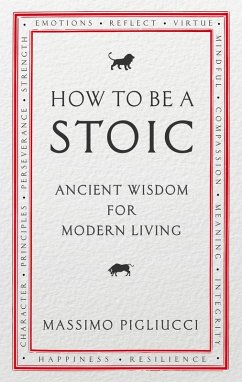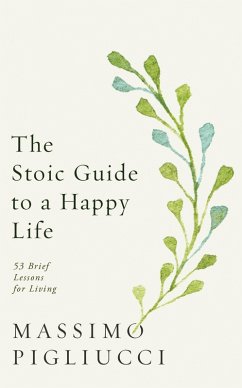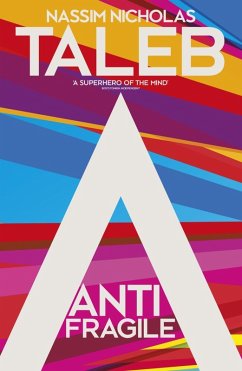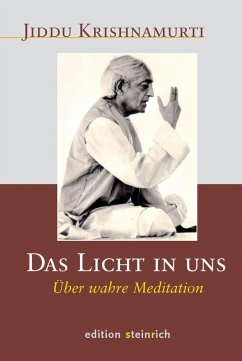
No Way Out (eBook, ePUB)
Enriched edition. Exploring the Illusions of Self-Realization and Freedom
Kommentar: Stanhope, Bennett / Redaktion: Good Press
Versandkostenfrei!
Sofort per Download lieferbar
1,99 €
inkl. MwSt.
Weitere Ausgaben:

PAYBACK Punkte
0 °P sammeln!
In "No Way Out," U. G. Krishnamurti presents a profound exploration of the human condition through a lens that is both philosophical and experiential. The text defies conventional spiritual and psychological paradigms, employing a unique narrative style characterized by its uncompromising directness and candid reflections. By eschewing established dogmas, Krishnamurti invites readers to confront the often uncomfortable truths of existence, challenging the constructs of spirituality, enlightenment, and personal identity. His writing resonates with a raw urgency that reflects the existential dil...
In "No Way Out," U. G. Krishnamurti presents a profound exploration of the human condition through a lens that is both philosophical and experiential. The text defies conventional spiritual and psychological paradigms, employing a unique narrative style characterized by its uncompromising directness and candid reflections. By eschewing established dogmas, Krishnamurti invites readers to confront the often uncomfortable truths of existence, challenging the constructs of spirituality, enlightenment, and personal identity. His writing resonates with a raw urgency that reflects the existential dilemmas of contemporary society, urging readers to engage deeply with their own perceptions of reality. U. G. Krishnamurti, an influential philosopher, emerged from a background steeped in both traditional inquiry and the rigors of personal experience. Having rejected the spiritual norms of his time, his lifelong investigation into the nature of thought, belief, and self led him to articulate a vision that resonates with those seeking authenticity in their lives. His unconventional insights stem from a synthesis of introspective study and radical skepticism, enabling him to confront the limitations imposed by societal conditioning. "No Way Out" is a compelling recommendation for anyone seeking liberation from the confines of intellectual constructs and societal expectations. This book offers a transformative experience, compelling readers to question the very foundations of their understanding and pursue a path of true self-awareness. Ideal for those in search of unfettered truth, it provides an invaluable perspective on navigating the complexities of existence. In this enriched edition, we have carefully created added value for your reading experience: - A succinct Introduction situates the work's timeless appeal and themes. - The Synopsis outlines the central plot, highlighting key developments without spoiling critical twists. - A detailed Historical Context immerses you in the era's events and influences that shaped the writing. - A thorough Analysis dissects symbols, motifs, and character arcs to unearth underlying meanings. - Reflection questions prompt you to engage personally with the work's messages, connecting them to modern life. - Hand-picked Memorable Quotes shine a spotlight on moments of literary brilliance. - Interactive footnotes clarify unusual references, historical allusions, and archaic phrases for an effortless, more informed read.
Dieser Download kann aus rechtlichen Gründen nur mit Rechnungsadresse in A, B, BG, CY, CZ, D, DK, EW, E, FIN, F, GR, H, IRL, I, LT, L, LR, M, NL, PL, P, R, S, SLO, SK ausgeliefert werden.













